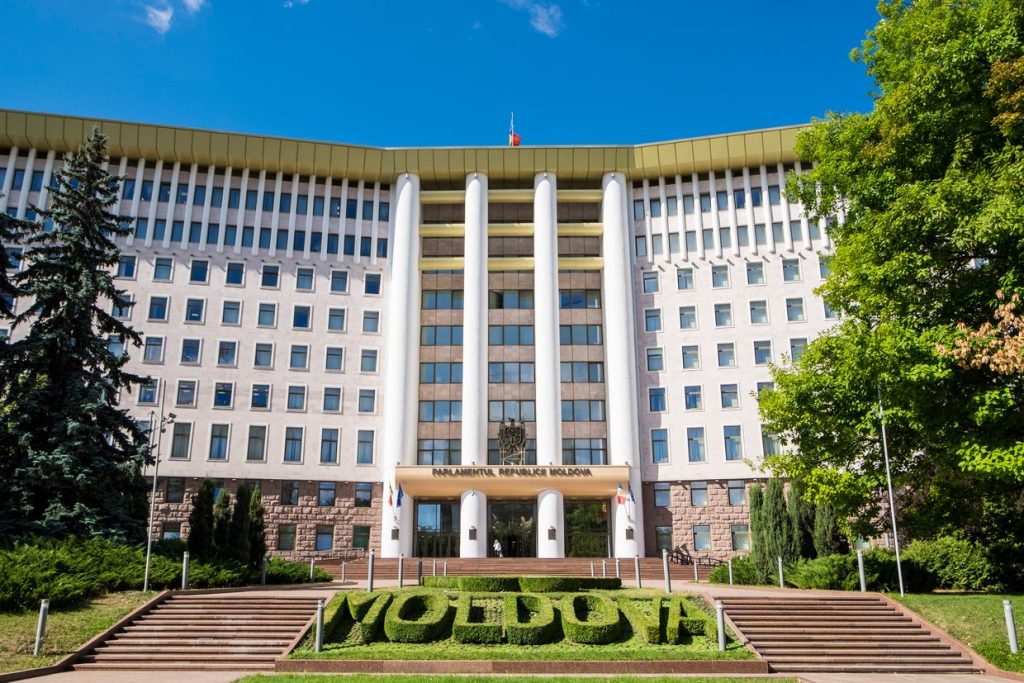Moldovan authorities have uncovered a scheme orchestrated by a pro-Russian oligarch to influence upcoming elections by paying citizens to vote against closer ties with the West. Over $15 million in Russian funds have been channeled to over 130,000 Moldovans, with instructions on how to vote and spread disinformation about the EU through the messaging app Telegram. Ilan Shor, a Moldovan-Israeli tycoon, stands accused of laundering the money and organizing the network, despite his political party being banned. The Kremlin’s efforts are part of a broader strategy to undermine Moldova’s pro-Western leadership ahead of the EU referendum and presidential elections on October 20. Moldova’s chief of police has described the situation as a combination of voter bribery, hybrid warfare, and disinformation, unprecedented in the country’s history.
The US has raised concerns about foreign interference in elections, naming Russia, Iran, and China as the biggest threats to the upcoming presidential election. These countries have reportedly been utilizing generative AI technology to create believable text, synthetic audio, and video that can reach US audiences while concealing their origins. This warning highlights the evolving tactics used by foreign adversaries to manipulate public opinion and influence electoral outcomes. The use of advanced technology such as generative AI poses a significant challenge to detecting and countering disinformation campaigns aimed at sowing division and undermining democratic processes.
Chisinau, the capital of Moldova, has been a strong supporter of Ukraine during the conflict with Russia and has taken action to counter Russian influence within its borders. In July 2023, Moldova expelled dozens of Russian diplomats and embassy staff after uncovering espionage activities. The fear of a potential spillover of hostilities from the ongoing conflict, particularly through the Russian-occupied region of Transnistria, has fueled concerns about the country’s security and stability. The Kremlin’s efforts to undermine Moldova’s pro-Western stance and influence the upcoming elections further exacerbate these fears, creating a complex and challenging situation for the country’s leadership.
The revelations of the scheme led by the pro-Russian oligarch and the influx of Russian funds to sway Moldovan voters have raised alarm bells about the integrity of the electoral process and the threat of foreign interference in the country’s political affairs. The combination of voter bribery, hybrid warfare, and disinformation tactics represents a new and concerning development in Moldovan politics, forcing authorities to address the issue of election manipulation and safeguard the democratic process. The sophisticated nature of the scheme, involving large sums of money and instructional messaging to voters, underscores the extent to which foreign adversaries are willing to go to exert influence and advance their interests.
Moldova’s confrontation with Russian interference and its resilience in facing external threats demonstrate the country’s commitment to upholding its pro-Western orientation and preserving its sovereignty. The expulsion of Russian diplomats and embassy staff following espionage revelations reflects a firm response to encroachments on Moldova’s national security and sovereignty. As Moldova prepares for crucial elections in the midst of external challenges and domestic political tensions, the need for vigilance against foreign influence and manipulation becomes increasingly apparent. The continued support for Ukraine and resistance to Russian subversion underline Moldova’s determination to chart its own course and resist external pressures.
The ongoing efforts by foreign powers to subvert Moldova’s pro-Western leadership and influence the electoral process underscore the broader geopolitical competition in the region and the strategic significance of the country. Moldova’s role as a battleground for competing interests, particularly between Russia and Western allies, highlights the complex dynamics shaping its political landscape. As the country grapples with internal divisions, external pressures, and security threats, the need for unity, transparency, and resilience in defending democratic values and institutions becomes paramount. Moldova’s ability to navigate these challenges and uphold its sovereignty will be crucial in determining its future trajectory and standing in the international arena.


